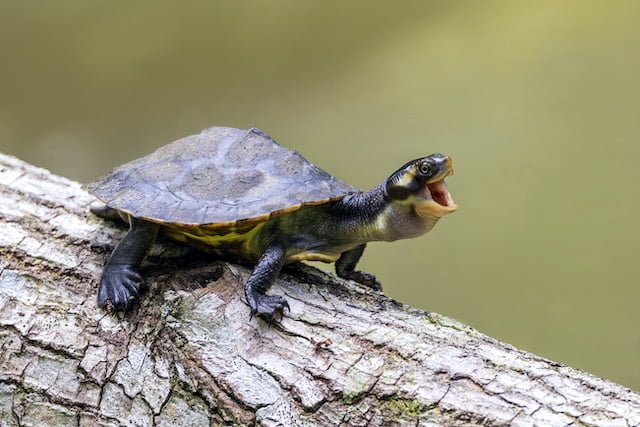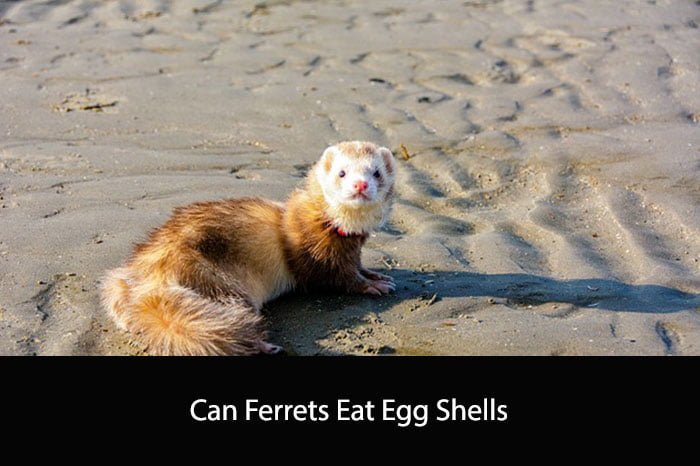Russian tortoises are a popular pet among reptile enthusiasts. These animals are known for their hardy nature and their ability to thrive in captivity. As with any pet, it is important to provide your Russian tortoise with a balanced diet that meets their nutritional needs. One question that often arises is whether or not a Russian tortoise can eat spinach.
Spinach is a leafy green vegetable that is often touted as a superfood for humans. It is packed with vitamins and minerals, making it a healthy addition to any diet. However, when it comes to feeding spinach to your Russian tortoise, there are a few things to consider. In this article, we will explore the question of whether or not a Russian tortoise can eat spinach, and provide you with the information you need to make an informed decision about your pet’s diet.

Understanding Russian Tortoises
Habitat and Lifestyle
Russian tortoises are small, hardy tortoises that are native to the arid regions of Central Asia. They are well adapted to hot, dry environments and can be found in rocky hillsides, semi-deserts, and grasslands. Russian tortoises are active during the day and spend most of their time basking in the sun or foraging for food.
In captivity, Russian tortoises require a spacious enclosure with ample room to move around and a basking area with a heat lamp. They also need a substrate that is easy to clean, such as coconut coir or newspaper, and a hide box where they can retreat for privacy.
Dietary Preferences
Russian tortoises are herbivores and have a varied diet in the wild. They eat a variety of grasses, weeds, and other plants, including flowers and fruits. In captivity, they should be fed a diet that is high in fiber and low in protein and fat.
While spinach is a nutritious vegetable, it should not be a staple food for Russian tortoises. Spinach contains high levels of oxalates, which can bind to calcium and prevent it from being absorbed by the tortoise’s body. This can lead to metabolic bone disease, a serious condition that can cause deformities and even death.
Other leafy greens, such as kale, collard greens, and mustard greens, are good options for Russian tortoises. They are low in oxalates and high in calcium, which is essential for the tortoise’s bone health. Additionally, Russian tortoises will also eat hay, cactus pads, and other vegetables like carrots and squash.
Overall, it is important to provide a varied and balanced diet for Russian tortoises to ensure they receive all the nutrients they need to thrive.
Can Russian Tortoises Eat Spinach?
As tortoise owners, we want to provide the best diet for our pets. Spinach is a common leafy green vegetable that we often include in our own diets. But can Russian tortoises eat spinach?
The answer is yes, Russian tortoises can eat spinach, but it should be given in moderation. Spinach contains high levels of oxalates, which can bind with calcium and prevent its absorption. This can lead to metabolic bone disease, a serious condition that can cause deformities and even death in tortoises.
To prevent this, we should limit spinach to no more than once a week and feed it in small amounts. It’s also important to provide a calcium supplement to ensure that our tortoises are getting enough calcium.
In addition, we should always wash spinach thoroughly before feeding it to our tortoises to remove any pesticides or other contaminants that may be present.
Overall, while spinach can be a part of a Russian tortoise’s diet, it should be given in moderation and with caution to prevent potential health problems.
Pros and Cons of Feeding Spinach to Russian Tortoises
Nutritional Value of Spinach
Spinach is a leafy green vegetable that is rich in vitamins and minerals, making it a popular choice for human consumption. When it comes to feeding spinach to Russian tortoises, there are some nutritional benefits to consider. Spinach is a good source of:
- Vitamin A: important for maintaining healthy eyesight and skin.
- Vitamin K: necessary for blood clotting and bone health.
- Iron: essential for the production of red blood cells.
- Calcium: important for strong bones and teeth.
Feeding spinach in moderation can provide some of these essential nutrients to your Russian tortoise.
Potential Risks of Spinach
While spinach can be a nutritious addition to a Russian tortoise’s diet, there are also potential risks to consider. Spinach contains high levels of oxalates, which can bind to calcium and prevent its absorption. This can lead to the formation of kidney and bladder stones in tortoises. In addition, spinach contains goitrogens, which can interfere with thyroid function and cause goiter.
It is important to note that feeding spinach in large quantities or as a staple food can be harmful to your Russian tortoise’s health. To avoid these risks, spinach should be fed in moderation and as part of a varied diet.
In conclusion, while spinach can provide some nutritional benefits to Russian tortoises, it should be fed in moderation and with caution. It is important to consider both the pros and cons before adding spinach to your tortoise’s diet.
How to Safely Feed Spinach to Russian Tortoises
When it comes to feeding spinach to Russian tortoises, it’s important to take some precautions to ensure their safety. Spinach is rich in oxalates, which can bind to calcium and cause kidney stones in tortoises. However, spinach can still be a part of a balanced diet if fed in moderation and prepared properly.
Here are some tips on how to safely feed spinach to your Russian tortoise:
- Feed spinach sparingly: Spinach should only make up a small portion of your tortoise’s diet. Too much spinach can lead to health issues, so it’s best to limit their intake to a few leaves a week.
- Prepare spinach properly: Before feeding spinach to your tortoise, make sure to wash it thoroughly to remove any pesticides or bacteria. You can also blanch spinach by boiling it for a few minutes and rinsing it in cold water to remove some of the oxalates.
- Offer a variety of greens: Spinach should not be the only green in your tortoise’s diet. Offer a variety of leafy greens, such as kale, collard greens, and dandelion greens, to ensure they are getting a balanced diet.
- Monitor your tortoise’s health: Keep an eye on your tortoise’s health and behavior after feeding them spinach. If they show any signs of discomfort, such as lethargy or lack of appetite, discontinue feeding spinach and consult with a veterinarian.
By following these guidelines, you can safely incorporate spinach into your Russian tortoise’s diet. Remember to always feed in moderation and offer a variety of greens to ensure their health and well-being.

Alternatives to Spinach for Russian Tortoises
When it comes to feeding our Russian tortoise, spinach is a popular choice. However, it is important to note that spinach contains high levels of oxalates, which can bind to calcium and prevent its absorption. This can lead to health issues such as metabolic bone disease. Therefore, it is recommended to limit the amount of spinach in our tortoise’s diet.
Fortunately, there are many alternative greens that we can offer our Russian tortoise that are both nutritious and safe. Here are a few options:
- Endive: This leafy green is low in oxalates and high in calcium, making it an excellent choice for our Russian tortoise. It also contains vitamin A, which helps support healthy eyes and skin.
- Arugula: Arugula is another low-oxalate green that is high in calcium. It also contains vitamin C, which can help boost our tortoise’s immune system.
- Collard Greens: Collard greens are a good source of calcium and vitamin A. They are also low in oxalates, making them a safe choice for our Russian tortoise.
- Kale: Kale is a nutrient-dense green that is high in calcium, vitamin A, and vitamin C. However, it is important to note that kale also contains goitrogens, which can interfere with thyroid function if consumed in large amounts.
- Mustard Greens: Mustard greens are low in oxalates and high in calcium. They also contain vitamin A and vitamin C, making them a great choice for our Russian tortoise.
In summary, while spinach is a popular choice for feeding our Russian tortoise, it is important to limit its consumption due to its high oxalate content. Instead, we can offer a variety of other greens that are both nutritious and safe. By incorporating a variety of greens into our tortoise’s diet, we can help ensure that they are getting all the nutrients they need to stay healthy.

Frequently Asked Questions
What leafy greens are safe for Russian tortoises to eat?
Russian tortoises can eat a variety of leafy greens, including collard greens, dandelion greens, and kale. Spinach can also be fed in moderation, but it contains high levels of oxalates that can bind to calcium and lead to health problems if fed too often.
What vegetables should be avoided in a Russian tortoise’s diet?
Avoid feeding your Russian tortoise vegetables that are high in oxalates, such as spinach, beet greens, and Swiss chard. Vegetables that are high in goitrogens, such as broccoli and cabbage, should also be avoided.
What are some potentially harmful foods for Russian tortoises?
Foods that are high in protein, such as meat and dairy products, should be avoided as they can cause health problems in Russian tortoises. Additionally, fruits that are high in sugar, such as bananas and grapes, should be fed in moderation.
What are the dietary requirements for a Russian tortoise?
Russian tortoises require a diet that is high in fiber and low in protein and fat. They should be fed a variety of leafy greens and vegetables, as well as small amounts of fruit and occasional protein sources such as insects.
How can I ensure my Russian tortoise’s enclosure meets their needs?
Russian tortoises require an enclosure that is large enough to allow for exercise and exploration. The enclosure should also provide a basking area with a heat lamp, as well as a hiding area and a shallow water dish for soaking.
What should I know about caring for a Tuxedo tortoise?
Tuxedo tortoises have similar care requirements to Russian tortoises, including a diet that is high in fiber and low in protein and fat. They also require a spacious enclosure with a basking area and a hiding area, as well as a shallow water dish for soaking.





